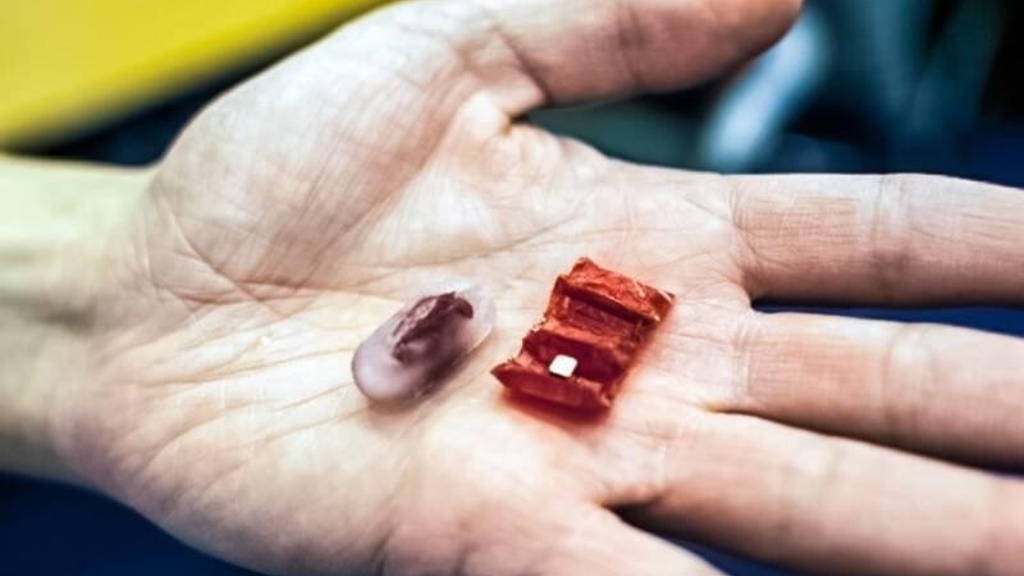The tiny origami can unfold itself from a swallowed capsule (that disolves in stomach acid) and, steered by external magnetic fields, crawl across the stomach wall to remove a swallowed button battery or patch a wound. This was shown in experiments involving a simulation of the human esophagus and stomach.
The robot consists of two layers of structural material sandwiching a material that shrinks when heated. A pattern of slits in the outer layers determines how the robot will fold when the middle layer contracts. In the center of one of the forward accordion folds is a permanent magnet that responds to changing magnetic fields outside the body, which control the robot’s motion.
The researchers tested about a dozen possibilities for the structural material before settling on the sort of dried pig intestine used in sausage casings. In the experiments a button battery was removed.
Every year, 3,500 swallowed button batteries are reported in the U.S. alone. Frequently, the batteries are digested normally, but if they come into prolonged contact with the tissue of the esophagus or stomach, they can cause an electric current that produces hydroxide, which burns the tissue.
###origami-Robot###
The robot consists of two layers of structural material sandwiching a material that shrinks when heated. A pattern of slits in the outer layers determines how the robot will fold when the middle layer contracts. In the center of one of the forward accordion folds is a permanent magnet that responds to changing magnetic fields outside the body, which control the robot’s motion.
The researchers tested about a dozen possibilities for the structural material before settling on the sort of dried pig intestine used in sausage casings. In the experiments a button battery was removed.
Every year, 3,500 swallowed button batteries are reported in the U.S. alone. Frequently, the batteries are digested normally, but if they come into prolonged contact with the tissue of the esophagus or stomach, they can cause an electric current that produces hydroxide, which burns the tissue.
New Design
De origami robot is a new deisign based upon an older origami robot, developed by a team also led by MIT CSAIL director Daniela Rus. De new version has a completely different design, but also propels itself using what’s called a “stick-slip” motion, in which its appendages stick to a surface through friction when it executes a move, but slip free again when its body flexes to change its weight distribution.###origami-Robot###






